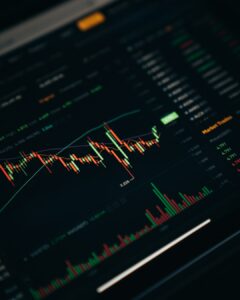Equity vs. Balance in Forex: What’s the Difference?
In the world of forex trading, two terms that often confuse beginner traders are equity and balance. While these terms may seem similar, they have distinct meanings and play crucial roles in understanding the overall financial health of a forex trading account. In this article, we will delve into the differences between equity and balance and shed light on their significance in forex trading.
To begin with, let’s define the terms. Balance refers to the total amount of money in a trading account at any given time. It includes the initial deposit, any profits made from successful trades, and any losses incurred. In simple terms, balance is the total value of the account without considering any open trades.
On the other hand, equity refers to the actual value of an account, taking into account both the balance and the unrealized profit or loss of any open trades. In other words, equity is the balance plus or minus the profit or loss of active positions. It represents the real-time value of the account and is constantly changing as the market moves.
Understanding the difference between equity and balance is crucial for traders, as it provides a clear picture of their account’s financial status. For instance, if a trader has a balance of $10,000 and has open positions with a total unrealized profit of $2,000, the equity of the account would be $12,000. However, if those open positions were incurring a loss of $1,000, the equity would be $9,000.
Now, you might wonder why equity is more important than balance when it comes to assessing the health of a trading account. The answer lies in risk management. Forex trading involves taking calculated risks, and understanding the potential risks associated with open positions is crucial for successful trading.
Equity provides traders with a realistic view of their account’s performance. It takes into account the profits or losses of open trades, which can fluctuate significantly depending on market conditions. By focusing on equity rather than balance, traders can determine the extent of risk exposure and make informed decisions accordingly.
Moreover, equity plays a significant role in determining the margin level of a trading account. Margin level is the ratio of equity to margin, expressed as a percentage. It represents the trader’s ability to take on additional positions and is closely monitored by brokers to ensure that sufficient funds are available to cover potential losses.
If the equity of a trading account falls below a certain threshold, known as the margin call level, brokers may issue a margin call, requiring the trader to deposit additional funds or close existing positions to maintain the required margin level. Monitoring equity levels is, therefore, crucial to avoid margin calls and potential liquidation of positions.
In conclusion, understanding the difference between equity and balance is essential for forex traders. While balance represents the total value of a trading account, equity takes into account both the balance and the unrealized profit or loss of open positions. Equity provides a more accurate view of a trader’s account performance and risk exposure, enabling informed decision-making and effective risk management.
By focusing on equity, traders can assess their account’s financial health, determine risk levels, and avoid margin calls. It is a key metric that should be closely monitored to ensure long-term success in the forex market.






